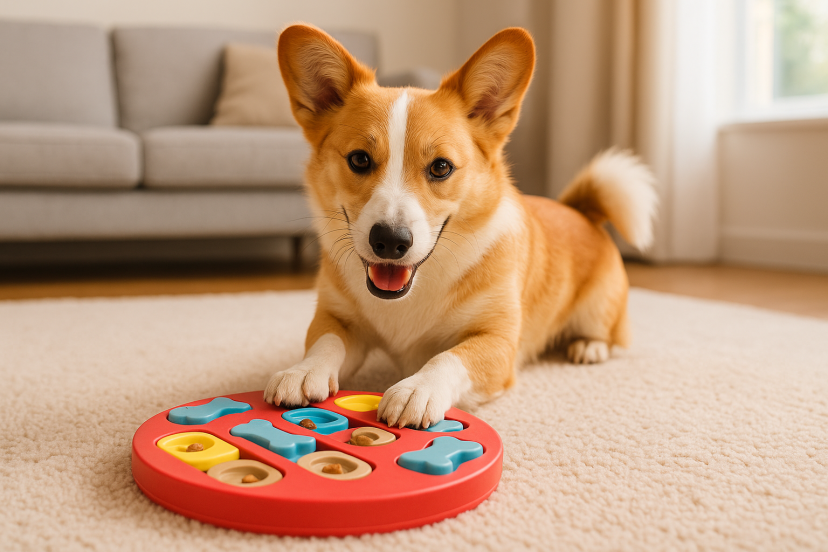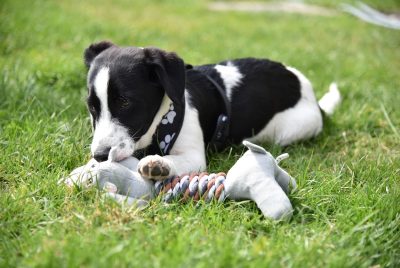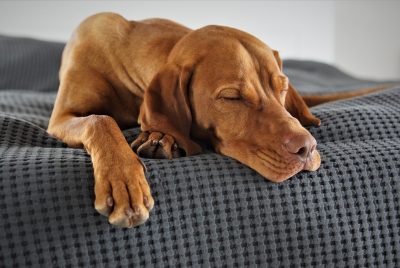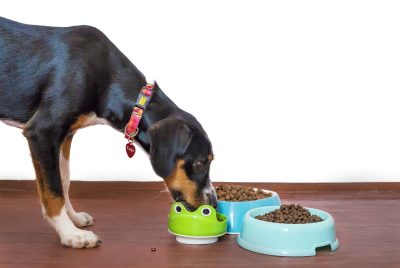7 Puzzle Toys to Keep Your Dog Sharp: The Best Picks for Smart Pups
We may earn a commission for purchases made using our links. Please see our disclosure for more details.
Dogs need more than just a daily walk—they crave challenges that make them think. Puzzle toys do just that. They keep your dog sharp, fight boredom, and even help curb unwanted habits like chewing or barking. If you’ve noticed your pup looking for trouble, it might just be their way of asking for a mental workout!
Mental enrichment is especially valuable for smart breeds and energetic pups, but all dogs benefit from a bit of brain training. Engaging with puzzle toys reduces stress, encourages problem-solving, and builds confidence. In the long run, it leads to a happier, better-behaved pet.
What to Look For in a Puzzle Toy
Shopping for the perfect puzzle toy? Keep these points in mind:
- Durability: Choose tough, non-toxic materials that can stand up to gnawing and pawing.
- Difficulty Level: Start with simple puzzles for beginners, then level up as your dog gets the hang of it.
- Size: Pick toys suited for your dog’s mouth and paws—too small can be a choking risk.
- Cleanability: Treat-dispensing toys should be easy to wash, since things can get messy!
- Variety: Rotating different puzzles keeps things interesting and maintains motivation.

7 Best Puzzle Toys for Dogs
Ready to upgrade playtime? These seven puzzle toys are favorites among dog owners and experts alike.
1. Outward Hound Hide N Slide
With multiple sliding compartments and nooks, this classic puzzle keeps your dog’s nose and brain busy. The non-slip base and durable build make it a safe pick for most breeds.
2. Nina Ottosson Dog Brick Puzzle
This interactive toy features flipping lids, sliders, and removable pieces. It’s perfect for dogs just starting with puzzles, but it still offers enough complexity for curious minds.
3. Kong Classic Dog Toy
A staple in most dog homes, the Kong Classic can be filled with treats, kibble, or peanut butter. Dogs must chew and bounce the toy to release the goodies inside—great for keeping jaws and brains occupied.
4. TRIXIE Dog Activity Flip Board
This flip board features different puzzle mechanisms, from sliders to liftable cones. It’s ideal for small and medium dogs who need variety in their enrichment.
5. Sniffiz SmellyMatty Snuffle Mat
The plush “grass” mat hides treats throughout, letting dogs sniff and search just like they would outside. It’s perfect for slowing down fast eaters and adding a sensory challenge.
6. Pet Zone IQ Treat Ball
As your dog rolls the ball around, treats gradually fall out. The adjustable opening lets you increase the difficulty as your pup gets smarter.
7. West Paw Zogoflex Qwizl Treat Dispenser
The West Paw Zogoflex Qwizl is a tough, flexible puzzle toy designed for enthusiastic chewers. Its unique shape holds treats, bully sticks, or kibble, and your dog must work to wiggle and nudge out the goodies. The Qwizl is dishwasher safe, non-toxic, and floats in water—making it a favorite for both indoor and outdoor play.
Tips for Introducing Puzzle Toys
- Start Simple: Let your dog build confidence with easy puzzles first.
- Show and Tell: Demonstrate how the toy works. Your pup will learn by watching you load the treats.
- Use High-Value Treats: Make the game extra rewarding with favorite snacks.
- Supervise at First: Help if your dog gets frustrated or tries to chew the toy apart.
- Rotate Toys: Change things up regularly to keep your dog excited.
- Try Automated Pet Care Solutions: For even more ways to enrich your dog’s life, explore the latest automated pet care products that help keep your pet happy, engaged, and healthy, even when you’re busy.

Scientific Insights: How Puzzle Toys Benefit Dogs
When it comes to understanding the real impact of puzzle toys on our furry friends, science backs up what many dog lovers already believe—mental enrichment matters. Let’s look at two of the most valuable studies that shed light on why puzzle toys are more than just a trend.
1. Behavioral Benefits in Kennelled Dogs
A well-known study published in Behavioural Processes examined the effects of food-based enrichment toys in kennelled dogs. Researchers found that providing puzzle toys led to increased activity, more positive engagement, and a noticeable reduction in stress-related behaviors such as excessive barking or pacing. This research clearly demonstrates the importance of using food puzzle toys to reduce anxiety and improve the well-being of dogs in confined environments. Discover the detailed findings on food enrichment and kennel behavior.
2. Cognitive and Emotional Effects in Companion Dogs
In a comprehensive review published in Animals (MDPI), scientists explored how both simple and complex puzzle toys affect household dogs. The study tracked activity, eating behavior, and emotional states over several days. Interestingly, while puzzle toys didn’t drastically change most behaviors in pets with access to daily interaction, the findings highlighted how enrichment remains crucial for certain dogs—especially those prone to boredom or stress. The research underscores the role of puzzle toys in supporting cognitive health and emotional balance. Read the full study on puzzle toys and canine welfare.
By considering both scientific research and your dog’s unique needs, you can feel confident that puzzle toys are a smart, evidence-backed addition to your pup’s routine.
Final Thoughts
Every dog deserves a mental challenge. Adding puzzle toys to your routine means more than just fun—it’s about health, happiness, and a stronger bond with your pup. Watch your dog light up as they solve a puzzle, and enjoy the peace that comes from a tired, content friend. Ready to make playtime smarter? Try one of these top puzzle toys and see your dog’s tail wag with excitement.
FAQs
What are the benefits of puzzle toys for dogs?
Puzzle toys provide mental stimulation, help prevent boredom, reduce anxiety, and can even curb problem behaviors like chewing or barking.
How can I select the ideal puzzle toy for my dog’s needs?
Look for toys that match your dog’s size, experience level, and interest. Start easy and add complexity as your dog learns.
Do puzzle toys pose any risks for certain dogs?
As long as you keep an eye on your dog, most puzzle toys should be safe. Always inspect toys for damage and avoid small pieces for heavy chewers.
How regularly should my dog play with puzzle toys?
You can offer puzzle toys daily or a few times a week. Use them when you need to keep your dog busy, especially on rainy days or when you’re out.
How should I respond if my dog becomes frustrated by a puzzle toy?
Go back to a simpler puzzle, offer encouragement, and use irresistible treats. Some dogs just need a little more time and patience.




